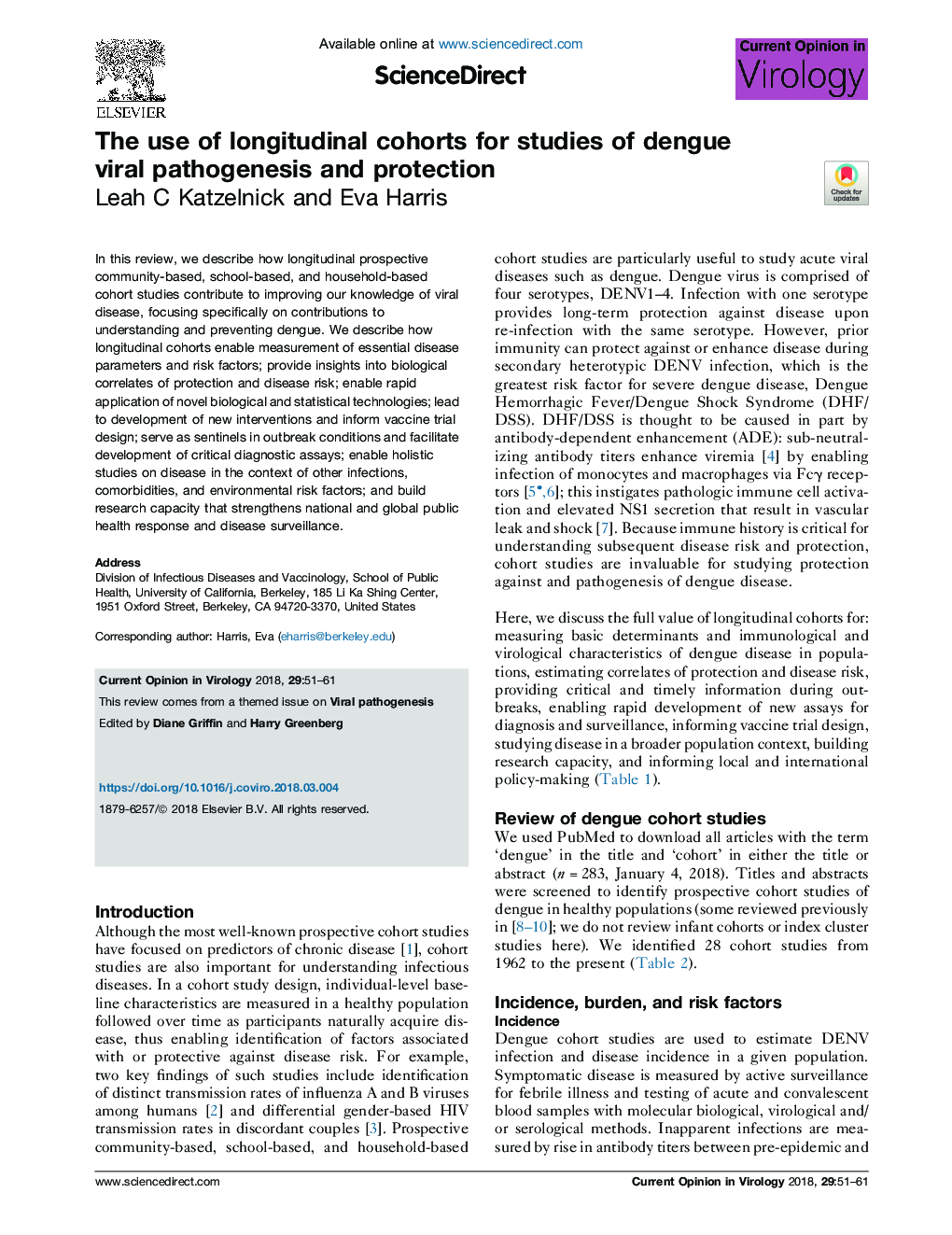| Article ID | Journal | Published Year | Pages | File Type |
|---|---|---|---|---|
| 8506523 | Current Opinion in Virology | 2018 | 11 Pages |
Abstract
In this review, we describe how longitudinal prospective community-based, school-based, and household-based cohort studies contribute to improving our knowledge of viral disease, focusing specifically on contributions to understanding and preventing dengue. We describe how longitudinal cohorts enable measurement of essential disease parameters and risk factors; provide insights into biological correlates of protection and disease risk; enable rapid application of novel biological and statistical technologies; lead to development of new interventions and inform vaccine trial design; serve as sentinels in outbreak conditions and facilitate development of critical diagnostic assays; enable holistic studies on disease in the context of other infections, comorbidities, and environmental risk factors; and build research capacity that strengthens national and global public health response and disease surveillance.
Related Topics
Life Sciences
Immunology and Microbiology
Virology
Authors
Leah C Katzelnick, Eva Harris,
